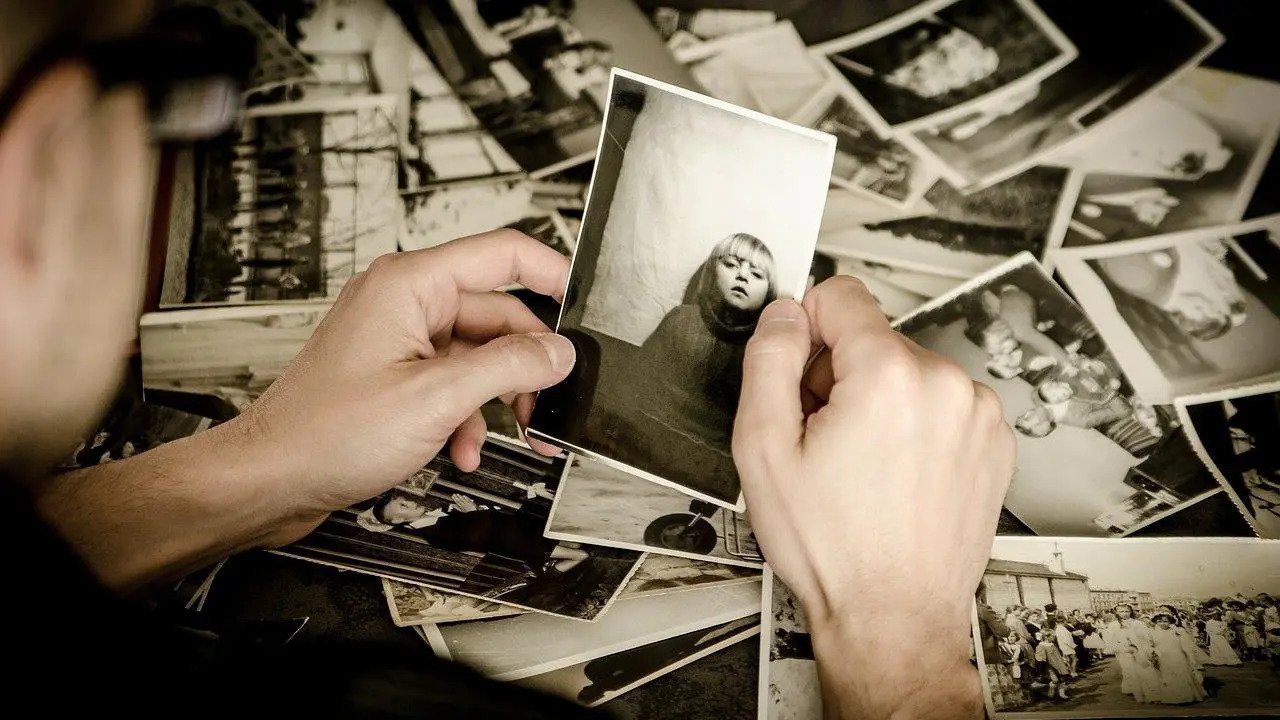Following her transition to Elliot, the name Ellen Page has been swiftly purged from our society’s common repositories of knowledge.
It has never been more important to purchase and collect media in physical formats that cannot be remotely altered. As Orwell famously wrote, “Who controls the past controls the future. Who controls the present controls the past.” It is considered a cliche to cite 1984 but this prophetic observation is being proven correct every day on the internet; evidence of what you knew to be a fact can be altered or deleted in all online sources in minutes.
Following the announcement by the actor Elliot Page (formerly known as Ellen Page, Hard Candy, Juno) that they now identify as transgender and have taken a new name, a tsunami of overweening praise swept across the major social media platforms. ‘Blue Ticks’ and even Facebook App ‘itself’ commented on the actor’s declaration with saccharine elation as if observing a deity’s rebirth; a slew of articles followed clogging social feeds with this breaking news and staff writers scrambled to sing the praises of this new identity. Immediately there was a hurried endeavour to erase the actor’s previous name, frantic pronoun adjustments and a frankly astonishing effort to gaslight the public about a well-known celebrity’s history as a female and a lesbian. Many revisions were accompanied by stern instructions on how to address and conceptualise the subject of the articles.
Wikipedia.com the go-to online information resource was edited in a flash only 7 minutes after Page’s Facebook announcement. A now ‘missing’ user changed the Wikipedia entry’s use of pronouns and names, the editor’s efforts applauded by another Wikipedia editor who awarded them “‘The Special Barnstar’ For being the first to correct Elliot Page’s pronouns”.
This shows the competitive element and social reward in being the first to implement the revisions. Luckily these edits leave a trace, for now, but disconcertingly Netflix immediately changed the credits on its landing pages for films featuring the actor to their new chosen name. This might not worry people now, but the integrity of historical truth is becoming increasingly fragile. How long before the film print credits are altered on digital streams to fit the current personas of cast and crew, quite literally overwriting the data and logs of who was on a production.
We have always been at war with Eastasia and the actor was always Elliot Page.
It is deemed a social and potentially a formal crime to “dead name” someone, i.e say their given or former name after someone has “transitioned” from one gender to another. This raises the question of whether film credits, awards or even news articles might be compelled legally, via Gender Recognition Laws and Hate Crime Legislation, if not just by consumer pressure, to edit all documentation of people who have undergone social reinvention? Will only the film enthusiasts who bought the DVDs be the ones to have an accurate snapshot of a time in history? DVD sales have fallen nearly 90% in the USA since 2008 with a similar trend in Europe with streaming services replacing hard copy sales of various forms of media from films and music to newspapers and books. Netflix, Hulu, Amazon Prime, Apple Music and Spotify enjoying explosive growth and vast market shares, meanwhile small publishers fold, print versions of magazines end, libraries, bookshops and music shops close. The change in consumption of media is linked to many things, access to the internet, the attractiveness of wide and less expensive access to films and tv and the convenience of on-demand services.
I also observe a connection to the lack of homeownership: “At the age of 27, those born in the late 1980s had a homeownership rate of 25%, compared with 33% for those born five years earlier (in the early 1980s) and 43% for those born ten years earlier (in the late 1970s)” (The Institute for Fiscal Studies, 2018). Impermanence leads to the culling of possessions for the logistical benefits of having less bulk, it is easier to move flats for work or to live in a small room if you have less to carry and store. If you have no room at a family home to dump collections of CDs and vinyl records the sheer mass of libraries of media isn’t desirable and becomes a hindrance. Why bother buying if it is all accessible on a 7-ounce phone? Why burden yourself saving newspaper clippings and photos if you have no attic, you can just check your iCloud gallery or ‘Google it’.
There is an assumption in convenience-culture that someone out there will keep copies of all the music and art for us consumers to virtually dip our toes in one day. This is a naive assumption because all storage, even digital “clouds” etc. still requires space, time and energy; Netflix, Facebook, Youtube etc. store information on a network of Data centres. These large buildings can be up to 6.3 million square feet (101 football fields) in size, like the world’s largest, Range International Information Group Datacenter (Langfang, Hebei Province, China), and they consume vast amounts of electricity and money to keep in operation. Since junk files waste storage space, infrequently accessed data will be relegated or disposed of. Popularity, markets and politics will decide which data will be preserved or made available. Priority bandwidth is given to popular titles or streams, less popular ones dropped from services or removed altogether. Have you checked your photos on Facebook that you uploaded 10 years ago? You might notice they look degraded, this is due to compression to make space for the 350 million images, countless hours of videos and live streams uploaded to the servers daily. You cannot rely on companies preserving your memories, documents, or the music you love. If you want to see them again, print them, buy the CD or burn them to your own storage devices.
When data is centralised or stored overseas there is also a risk that access will be denied due to trade deals, war or natural disaster, or simply losing a password. Home storage of media not only prevents personal upset but an outright loss of information akin to the burning of the Library of Alexandria. Fires can destroy master tapes, they can destroy server farms, but so long as someone somewhere has a tape or a CD or a book, all is not lost. Nobody can know what might be the future’s equivalent to The Book of Kells or a complete copy of Fritz Lang’s Metropolis.
“Don’t put all your eggs in one basket” is an understated warning when those relying on Google (And Alphabet’s other subsidiaries such as Google Mail, Youtube etc.) lost access not only for their documents, emails and reference materials but also control of their “smart homes”. Google Home subscribers lost authority over the basics of their household when the lights went out due to an extremely impactful glitch lasting an hour on the 14th of December. Remote software issues, either unintentional or malicious, can plunge you into darkness, not just literally but metaphorically.
Political motivations for controlled access to software and media are easy to ruminate on, the function of propaganda and censorship well established. Well, one would think so, but there was a certain historical ignorance in 2020 amongst the people described as “woke”. An emulation of the Chinese Cultural Revolution or Cambodia’s Khmer Rouge is in vogue with students and young people, supported by adults with agendas, tearing down statues and art that represent the past, expunging history of reminders of impure or distasteful legacies. Social kudos is gained by leading charges against the incorrect factions of society, as shown with the Elliot Page Wikipedia edits, adherents to contemporary ideologies that make swift moves to institute clean-up are awarded digital badges of achievement.
A statue or book edition is harder to destroy or unpublish than a website, an old dictionary is harder to edit than its online substitute. We are moving into an age where photos are stored on leased server farms, opinions and essays now delicate streams of code hosted on rented domains. This will lead to innumerable little Tiananmen squares; events, opinions sights and sounds disappeared behind a 404 error, ISP and Jurisdictional Block, GDPR, legacy software incompatibility, paywalls, a locked or banned account or the pseudo benevolent “right to be forgotten” (many thought it was good that Google and the EU would remove mentions of a name, but who might that benefit?).
Even the most famous names and the most powerful figureheads can fall foul of tech censorship. Thus proven with the silencing of arguably the most privileged person on earth (according to proponents of Identity Politics and Critical Race Theory), Donald J Trump, who has been banned and expunged from Twitter, Facebook and a whole roster of apps and forums. Let’s hope that Trisha Hope, a woman who sells Trump’s tweets in hardback volumes, has completed the archival preservation of his now-lost writings. It should scare anyone that a world leader can be silenced on so many websites in an orchestrated and collaborative manner, investments and cross-platform licenses forcing sites to take part in the sweeping removal of accounts. Now only certain people and certain companies have access to his words and data. Intellectual property questions and accessibility aside, it adjusts and inhibits our collective retrieval of internet history and evidence.
Bans and deletions are terrible but worse still is the ability of corporations to adjust history, implanting false memories and curating the past based on contemporary attitudes; for instance disclaimers and warnings on movies priming you to be offended at the contents, spoiling your right to approach the subject matter with fresh eyes to make your own opinion. TV Episodes will be deleted from back catalogues, such as “Little Britain” being removed from BBC Iplayer due to being problematic, the ragged omnipresent DVD box-set edition on the shelf of a charity shop suddenly becomes an artefact. I will be unsurprised when services remove digital copies of banned media from device libraries even if a customer paid for it, as has happened before due to glitches or cancelling subscriptions (iTunes and Apple Music have fallen foul). There is a fear that clauses will allow involuntary deletion of materials that go against company codes of ethics for such things as equality and diversity targets or pledges. As aforementioned Apple iTunes demonstrated, with a forced automatic download of a U2 album in 2014, companies could substitute or add tv shows or swap out versions for remasters or reworks, without your permission, creating bold or subtle changes to what you remember or own. For instance, aesthetics have been revised in movies; you might watch E.T (1982) or The Phantom Menace (1999) and wonder why you thought the protagonist aliens, E.T and Yoda, were puppets when they are now CGI, in fact, you are watching the “Remasters” from 2002 and 2011 respectively. Subtle reworking and swapping of publications, editions or versions could gradually change society’s collective memory of art, media, and events. One can easily imagine the censorial or bastardising lengths people would advocate in 2021 for aesthetic or symbolic function without seeing the dangerous precedent being set.
One could swear they saw something, or find themselves feeling foolish & confused when presented with a searched definition of a word on a malleable online dictionary, or when told by History.com that it was Caitlyn Jenner that won the Men’s (women weren’t allowed to compete) Decathlon at the Montreal Olympics in 1976.
For now, there are magazines and books documenting sports etc., but moving forward and observing the rate of change in consumer habits we could soon live in a world relying on oral history to keep our collective memories straight as the software we utilise tells us untruths.
Cultural zeitgeists and memes are being swiftly determined by think tanks and social media monopolies hand in hand with governments. The present is controlled by those who can edit the past and auto-censor the future. Proposals such as the “Online Harms White Papers” suggests removing or “deboosting” (or other jargon) “low-quality information”, we must ask ourselves: should we allow conglomerates to decide what memories are worth keeping with the justification of “online safety”, “quality” and “respect”?
Our brains are electrical, requiring a constant charge. Humans overrode the decay of thought by creating physical artefacts, and now we must resist relying on a worldwide network of capacitors that can cause social amnesia with the touch of a button.








Posted by T
5 February, 2021 at 8:26 pm
Brilliant article
As a film buff with a big dvd collection, I wonder how long we will be able to even play them? New laptops do not have integral cd/dvd players and you have to buy an external one. Portable MP3 players are still around, but for how much longer? Once we are all restricted to downloading from “the cloud”, the history of films and tv can be censored with impunity. Examples of scenes being edited out of older films for streaming include: people smoking ( every director seems to think they must include at least one scene of a carachter telling off another about smoking, it sets my teeth on edge! Even Jo-Jo Rabbit! In reality, Jo- Jo would have grabbed as many cigs as possible, they were used for barter in war- torn Europe); the twin towers;racial language; and now actor’s previous names. But films are not just entertainment, they are important social documents. Censoring them is a short step from banning them completely.
Posted by NorthernFreeThinker
15 February, 2021 at 4:08 pm
2020 is the end of any hope of free speech and the end of democracy as we know it, and the advent of a truly Big Brother/Equilibrium dystopia. News papers hardly exist any more, and their ownership is extremely concentrated. And online, all dissenting opinions are now being censored. Trump was not very special, what really was special about 2020 is that the governments have convinced humanity to “Stay Home”, and not be with friends or loved ones, the biggest government power grab since the Third Reich, and few are resisting.